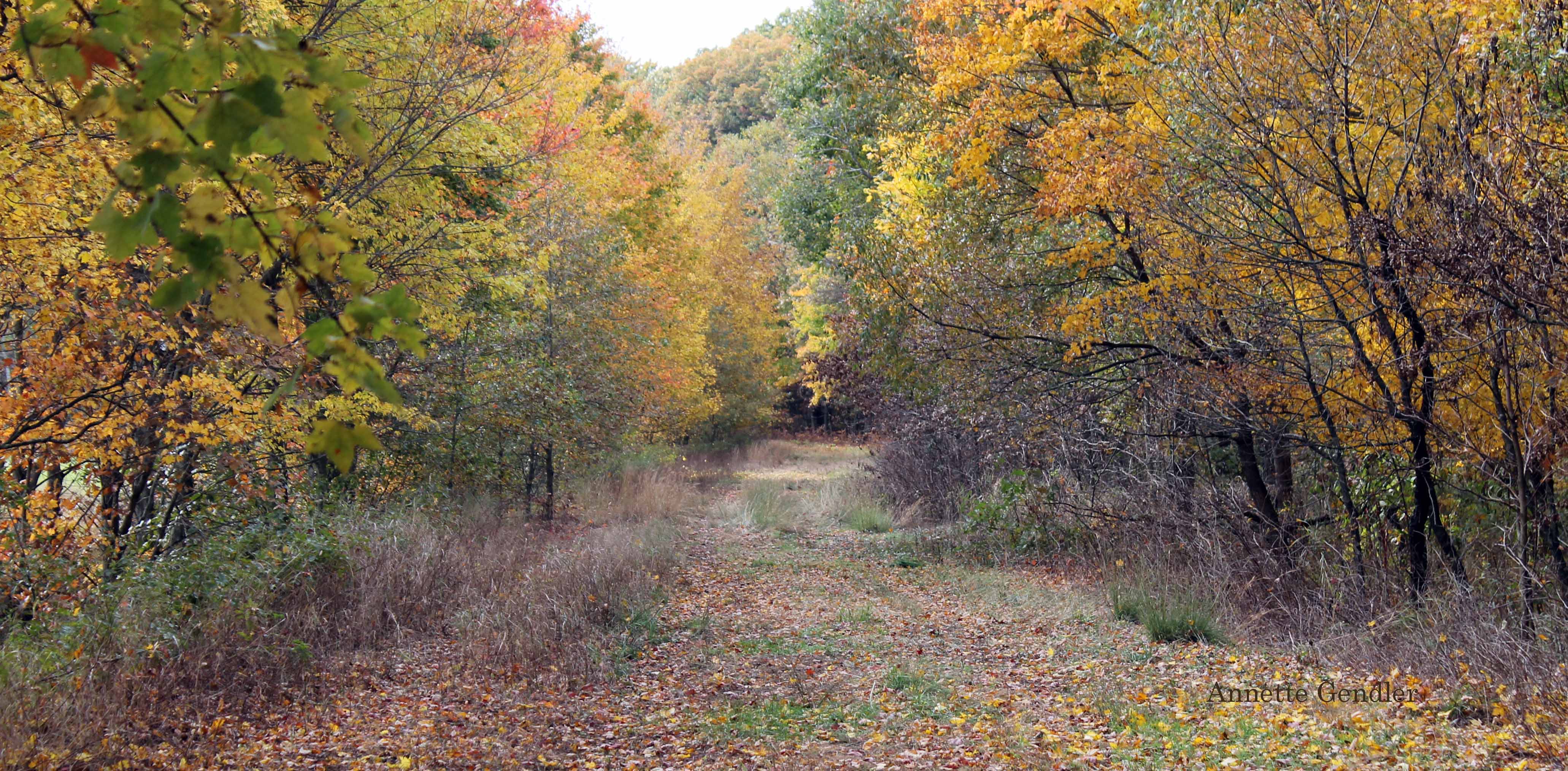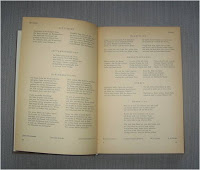
Today is the last day of November, an appropriate time to share with you my favorite poem, Herbsttag (Autumn Day) by Rainer Maria Rilke.
Many of you probably know him as the author of Letters to a Young Poet, a classic in the literature about writing and finding a vocation. However, Rilke is one of the “big guys” of German literature, and I find something I respond to in most of his many, many poems.

I fell in love with Rilke’s poem Autumn Day as an adolescent, leafing through one of my grandparents’ anthologies of German poetry called Kranz des Lebens (wreath of life).
I made sure that particular book made it to my bookshelf after my grandmother died. It is now a beloved yellowed friend. As I paged through it yesterday, I wondered about its history. I wish I knew why my grandparents had this particular book. It was published in 1955 but there’s no dedication in it, nor is my grandfather’s name on the list of editors (it is in many other books they had). Maybe this anthology had less meaning to them than it has to me now.
I looked long for a translation of Herbsttag that I felt comes close to the original German, particularly the last stanza, which is the part I really cherish.
I think I fell in love with the phrase “lange Briefe schreiben” (writing long letters) as that is exactly what I did as a teenager, but those last five lines capture the melancholy of autumn so perfectly.
I was reminded again that translation is always, at best, an approximation.
For example, the word “Alleen” means roads lined with trees on both sides. In German “Alleen” immediately conjures up that image – in English, no such word exists. Anyway, enough waxing, here it is, first in the original, then the translation.
Herbsttag
Herr: es ist Zeit. Der Sommer war sehr groß.
Leg deinen Schatten auf die Sonnenuhren,
und auf den Fluren laß die Winde los.
Befiel den letzten Früchten voll zu sein;
gib ihnen noch zwei südlichere Tage,
dränge sie zur Vollendung hin und jage
die letzte Süße in den schweren Wein.
Wer jetzt kein Haus hat, baut sich keines mehr.
Wer jetzt allein ist, wird es lange bleiben,
wird wachen, lesen, lange Briefe schreiben
und wird in den Alleen hin und her
unruhig wandern, wenn die Blätter treiben.
Rainer Maria Rilke
This translation is by J. Mullen:
Autumn Day
Lord: it is time. The summer was great.
Lay your shadows onto the sundials
and let loose the winds upon the fields.
Command the last fruits to be full,
give them yet two more southern days,
urge them to perfection, and chase
the last sweetness into the heavy wine.
Who now has no house, builds no more.
Who is now alone, will long remain so,
will stay awake, read, write long letters
and will wander restlessly here and there
in the avenues, when the leaves drift.

Very nice, Annette. I once entered a poem in a contest and the judge wrote on the side of the paper, "This is a prayer, not a poem." Like the one you shared above, a prayer can be a poem. To me, it becomes personal, a talk between a person and God, and it can be a thing of pure beauty–as you've shown us today.
Beautiful. Your grandparents were a good influence on you, as were mine. Thanks for sharing!
Oh I love this! Fall is my favorite season.
Thank you for sharing this poem Annette and for it's translation. I have a German background as my grandfather was from Hanover Germany, but I do not speak the language.
Beautiful. 🙂
Nancy – thanks for pointing out the prayer aspect! It made me think of another poem that I love by W.H. Auden, and I realized it also has a prayerlike quality. That got me thinking even more about why I like those kinds of poems…
The Desert Rocks – grandparents are a blessing, aren't they?
Karen – glad you liked the poem. Fall is my favorite season, too.
I love-love-love that German has a word for a road lined with trees. A beautiful poem, a beautiful post.
Beautiful poem, Annette. My dad's side is German, however I don't speak the language. Thank you so much for sharing this. 🙂
Gorgeous poem, Annette. Thank you for sharing it. I wish my German wasn't so rusty! I love the phrase "Lay your shadows onto the sundials" — so beautiful!
Very nice – thank you for sharing.
I think it is a great translation (obviously) but the one thing translations can't capture is (and I can't explain this well) that feeling of a different time and place reading in another language creates. Reading in German takes me back to Germany.
Kelley – yes, "Alleen" is a great word. They used to plant trees along all the country roads to make shade for the horses, so even narrow lanes are now lined by magnificent trees.
Sheila – and here I had qualms about posting a German poem!
Angela – glad you liked that sundials phrase. Perhaps I shall post more in German to get that rust off yours!
E.D. – thank you for your comment. Even in German, it does convey the sense of a different time and place, probably because it has a formality and calm to it that are pretty much obsolete now.
A little late to the party, but could not resist challenging your statement about "Aleen" – so here is my translation 🙂
Autumn day
Lord: it is time. The summer's breadth was vast.
Drape now Thy shadow over sundial faces,
Let the winds race through barren meadowgrass.
Command the tardy fruit to reach full shape;
Grant two more days of southerliness pleasing,
Urge them to wholesomeness, give chase uneasing
To top up sweetness in the heavy grape.
Who has no house as yet, left it too late.
Who is alone, will find it heavy going,
Will gaze, and read, write letters ever growing,
Avenues to-and-fro perambulate,
Restlessly wander, while the leaves are blowing.